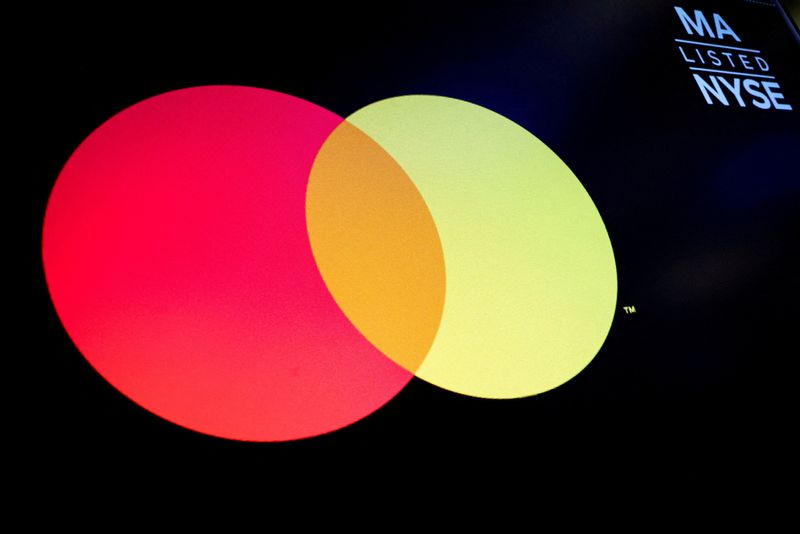By Foo Yun Chee
BRUSSELS (Reuters) -Visa and Mastercard (NYSE:MA) will extend caps on tourist card fees agreed five years ago with EU antitrust regulators by another five years to 2029, the European Commission said on Friday.
Visa (NYSE:V), the world's largest payments network operator, and its closest rival Mastercard, in 2019 agreed to a 0.2% fee cap on non-EU debit card payments carried out in shops and a 0.3% fee limit on credit card payments to settle an EU antitrust investigation and avoid hefty fines.
The fee caps are due to end in November this year. The move followed a long-running investigation by the EU competition enforcer triggered by a 1997 complaint by business lobby EuroCommerce.
The Commission, which acts as the EU antitrust watchdog, said the two companies volunteered to continue the fee caps beyond 2024.
"Inter-regional interchange fees for debit and credit card transactions under these schemes will remain capped for another 5 years until November 2029," it said in a statement.
"For card present (offline) transactions, the fees will remain capped at 0.2% for debit cards and 0.3% for credit cards. For card not present (online) transactions, the caps will remain 1.15% for debit cards and 1.5% for credit cards," it said.
Visa said the extended fee caps provide market certainty on inter-regional interchange rates.
"The Commitments agreed with the EC in 2019, and this new Undertaking, recognise that cross border, e-commerce transactions are fundamentally different to in-store payments," the company said in an email.

Visa and Mastercard set and charge interchange fees, also known as swipe fees, to merchants which accept their debit and credit cards. The charges generate profits for bank and other card issuers.
The EU enforcer however warned that it would start an investigation if it finds concrete evidence showing that the current caps would not be appropriate anymore.